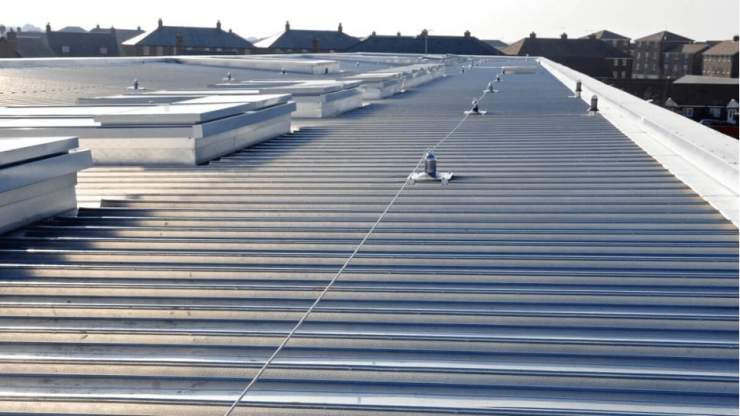Key Considerations for a Successful Commercial Facade Renovation
When it comes to commercial properties, the building’s facade plays a far more significant role than many business owners realize....

Commercial roofing projects come with inherent safety challenges, but these concerns grow significantly when the buildings in question are public-facing — such as schools, shopping malls, or data centers. In such spaces, roofing contractors must not only protect their workers but also safeguard students, shoppers, staff, and the general public.
At SubCity Contractor Network Pro, LLC, safety is our top priority. Whether working at a busy retail center or a fully operational school campus, we follow strict safety procedures that align with local laws and best industry practices. In this guide, we outline important safety measures that must be taken during commercial roofing at public or high-traffic facilities.
Roofing contractors must comply with federal, state, and local safety codes that often vary based on building type and use. For example, working at a school may involve special regulations, such as police supervision near loading zones or time restrictions to minimize disruption during school hours.
Common regulatory requirements may include:
All roofing work must align with Occupational Safety and Health Administration (OSHA) guidelines and relevant building codes. For multi-use or specialized buildings, contractors should consult specific industry safety references and local authorities.
Communication is vital in any construction project. One of the most effective ways to streamline safety planning is by establishing a single point of contact between the property manager and the roofing team.
This ensures:
For schools, this could be the principal. For malls, it might be the building supervisor or head of security. Open and ongoing communication avoids missteps and improves project safety.
Each roofing site has its own risks. A comprehensive hazard assessment before work begins is essential.
Things to inspect:
Planning around these hazards avoids surprises and makes the project safer for workers and bystanders alike.
Commercial buildings like schools and malls often remain open during roofing projects. In such cases, the public must be shielded from roofing activity.
Best practices include:
These measures help protect pedestrians, tenants, and students from potential harm and keep liability risks to a minimum.
Different roofing systems require different safety strategies. Contractors must consider how the tools and materials used will be handled on-site.
Key planning areas:
Every project should begin with a site-specific safety plan that accounts for the type of roofing materials and any special equipment.
Schools pose special challenges. Children may be present during off-hours for after-school programs, summer school, or playtime. Roofers must anticipate children’s curiosity and make the site 100% inaccessible to them.
School roofing safety tips:
Some schools also choose to educate students on roofing safety through assemblies or teacher supervision, adding an extra layer of protection.
Malls often remain fully operational during roof repairs. In these busy environments, roofing at night may reduce disruption but introduces additional safety concerns.
Night roofing precautions:
Stakeholders should have emergency evacuation procedures in place, and roofers must maintain clear escape routes at all times.
FAQs: Commercial Roofing Safety
Fall risks, equipment mishandling, trip hazards like skylights or vents, and power line contact are all common risks.
Guardrails, safety nets, and Personal Fall Arrest Systems (PFAS) are standard safety gear for roofing at heights.
Through proper safety training, hazard identification, appropriate equipment, and strong site management protocols.
Whether you’re a property manager overseeing a shopping center or a school official arranging for a roof upgrade, safety must be the foundation of your roofing project. At SubCity Contractor Network Pro, LLC, our network of expert commercial roofing contractors is trained, certified, and committed to providing top-tier workmanship while prioritizing the safety of everyone involved.
📍 Serving clients across NYC and the surrounding regions
📞 Call us today at (228) 224-2703 to schedule your commercial roofing consultation.
Commercial roofing projects come with inherent safety challenges, but these concerns grow significantly when the buildings in question are public-facing — such as schools, shopping malls, or data centers. In such spaces, roofing contractors must not only protect their workers but also safeguard students, shoppers, staff, and the general public.